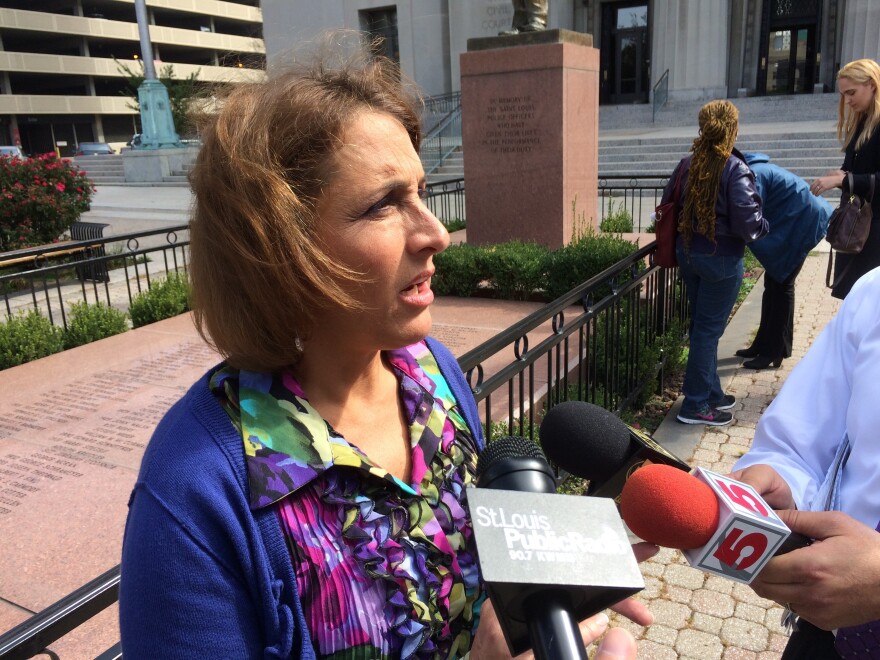The fate of St. Louis’ minimum wage law is in the hands of a judge.
St. Louis Circuit Judge Steven Ohmer heard arguments on Tuesday over a law raising the city’s minimum wage to $11 an hour by 2018. A coalition of businesses and business groups are challenging the measure in court.
After roughly two hours of arguments, Ohmer promised to deliver a quick ruling on the lawsuit. He had previously promised to decide on the validity of the law by October 15, the day that the city’s minimum wage is expected to rise from $7.65 to $8.25 an hour.

Spencer Fane attorney Jane Dueker is representing the plaintiffs, which includes the Missouri Chamber of Commerce and the Missouri Restaurant Association. She contends that state statutes and prior court decisions prohibit local cities from raising their own minimum wages.
Among other things, Dueker pointed to a law passed in 1998 that prohibits municipalities from raising minimum wages. She also cited a court case last year that scuttled the city and court’s foreclosure mediation ordinances.
“There’s four different ways it could be over,” Dueker said after Tuesday’s hearing. “The city has to overcome four different pre-emption arguments that they’re going to be unable to. But the 1998 law, clearly. If that is in effect as we believe it is legally and which the city believed in 2002 was still in effect, then this case is over.”
But St. Louis City Counselor Winston Calvert and several outside attorneys from Dowd Bennett say the city’s ordinance is legal. He said that the 1998 law was declared unconstitutional in the early 2000's. (Dueker says St. Louis Circuit Judge Robert Dierker’s decision on that statute wasn’t binding.)

Calvert also said that a recently-enacted law banning local minimum wage hikes authorized municipal increases that occurred on or before August 28. He said that law “declared unambiguously that we had a window of time before August 28 to pass a minimum wage ordinance -- and that’s exactly what the city did.”
“These few business interests that oppose working people earning more have thrown a lot of things against the wall, “ Calvert said. “And the fact of the matter is that the law [says] that until August 28, the city had an opportunity to pass a minimum wage so that working people could get a little more and life could get a little bit easier for people. And the city did exactly that. And now, because of this state law, other localities can’t do what we’re doing for working people. But that doesn’t mean the city was wrong in doing what it could in the context of those laws.”
But Dueker said that statute doesn’t have any bearing on this particular case because it doesn’t go into effect until October 15. Even if it was in effect now, Dueker said she doesn’t believe the city is interpreting it correctly.
“I don’t believe it allows them to pre-empt state law. It’s not an authorizer,” said Dueker, referring to the law that bans local minimum wage increases and bars cities from banning plastic bags. “It didn’t say ‘oh, go ahead now. Even though we’ve always pre-empted a local minimum wage, we’re going to go ahead and give you a three month window to do that.’ That’s not what it says. They’re reading it that way in order to justify the ordinance. … But if the legislature didn’t want them choosing between paper and plastic, they don’t want them enacting a minimum wage that contravenes the state minimum wage.”
In response, Calvert said it doesn’t matter in this instance when the newer law banning local minimum wage hikes goes into effect. “If the plaintiffs wanted to be back in court on Oct. 17 and argue about those same things, we’re happy to do that,” he said. “We thought it was more important to save everybody’s time, make it efficient and get to the heart of the issue.”







